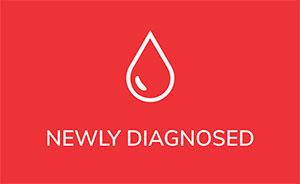
Introduction
For chronic lymphocytic leukemia patients, there is no dearth of things to worry about, especially when it comes to adverse prognostic and predictive factors.
The novel targeted therapies may have challenged the importance of some markers. One example is that ibrutinib seems to be agnostic to IGHV mutation status, but we know it is of great predictive importance when consider fludarabine, cyclophosphamide and rituximab, commonly known as FCR.
But others persist in their negative prognostic and predictive power.
After the dreaded 17p deletion and TP53 mutation, the sophisticated patient might have worried most about having a complex karyotype.
A karyotype in this case refers to the profile of the chromosome found in our CLL cells. Three or more abnormalities in the 23 chromosome pairs and we are defined as having a complex karyotype that was thought to carry a poor prognosis and might predict quicker relapses even with the newer targeted drugs.
Turns out based on recent important research published in BLOOD by Panagiotis Baliakas and others that it is much more nuanced than simply counting the number of aberrations. Some complex karyotypes may even confer a favorable prognosis with a very indolent or slow course.
This research also illustrates the power of collaborative research done by ERIC (European Research Initiative In CLL) and other collaboratives and reminds us why we patients should always say “yes” when our doctors ask for a few extra tubes of blood by our doctors for their studies.
We are lucky to have the lead author, Panagiotis Baliakas, explain his study below:
Complex Karyotype in CLL
Panagiotis Baliakas
For many years, researchers have studied genetic aberrations associated with CLL with the aim to both understand disease development and evolution and improve risk stratification. Evidence from such studies suggests that cytogenetic complexity, i.e. the presence of multiple chromosomal aberrations, could be used as a new predictive marker for prognosis and therapy response.
Recently, the clinical relevance of cytogenetic complexity was investigated in a series of more than 5,000 patients with CLL, the largest by far ever studied to this purpose, consolidated by ERIC, the European Research Initiative on CLL (Blood 2019).
“By definition, complex karyotype is present when there are at least three structural or numeral aberrations on the chromosomes in a given sample. However, a noteworthy finding from our study was that patients with five or more aberrations had a shorter overall survival than those with three or four, independently of other factors,” say study coordinators Panagiotis Baliakas and Kostas Stamatopoulos.
Panagiotis raises another important issue: “the presence of a complex karyotype is not always adverse. We also found the opposite, where patients with complex karyotype in combination with specific numerical aberrations, namely extra copies of chromosomes 12 and 19, had an extremely indolent disease course”.
Based on the new findings, the ERIC researchers propose a new hierarchical model capable of identifying subgroups of patients with markedly distinct clinical outcomes. After the required further clinical validation, they hope that analysis of complex karyotype can be used by doctors to improve prognostication in CLL.
Panagiotis Baliaka, MD, PhD is specialist in Hematology and Clinical Genetics, subspecialised in cancer genetics. He is working at the Clinical Genetics department at Uppsala University Hospital, being the medical director of the hematology diagnostic laboratory. He is an active member in ERIC, the European Research Initiative in CLL, being instrumental in a number of studies aiming in optimizing prognosis and prediction in CLL. His current research interests include: immunogenetics in human lymphoid malignancies, genetic characterization of lymphoid and myeloid malignancies as well as genomic elucidation of predisposition syndromes to hematological malignancies.
Originally published in The CLL Tribune Q2 2019.

















